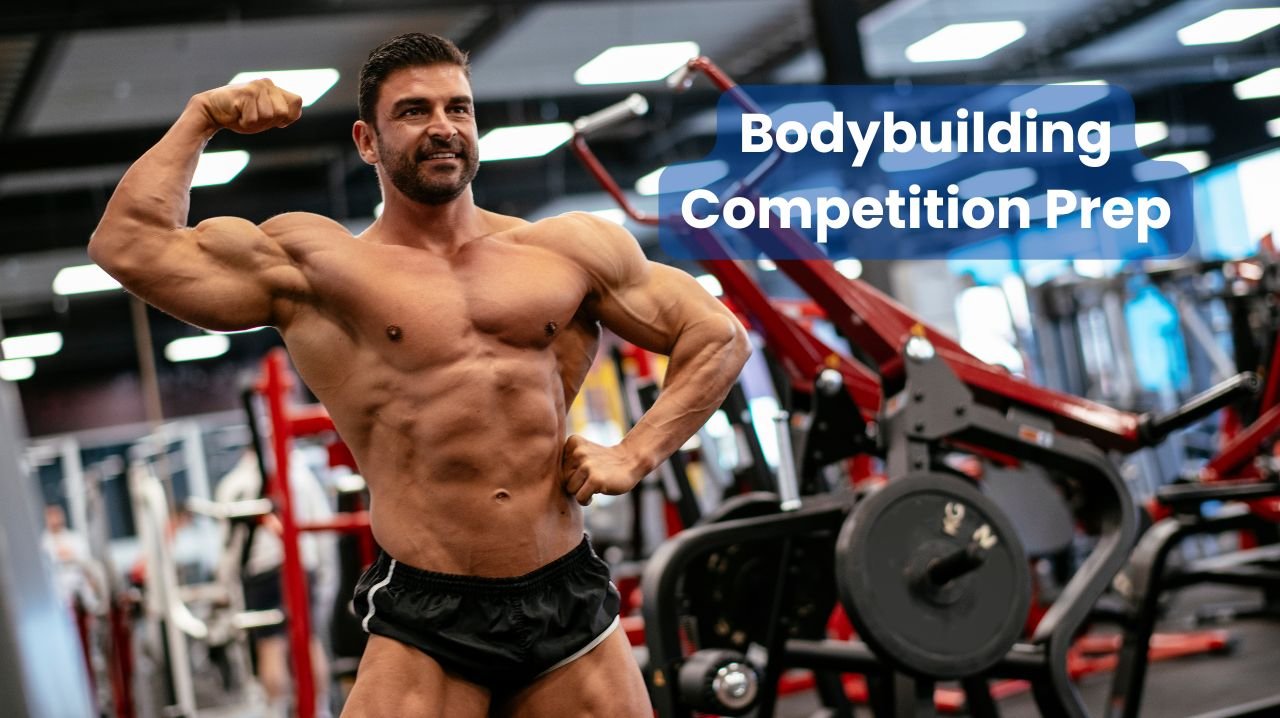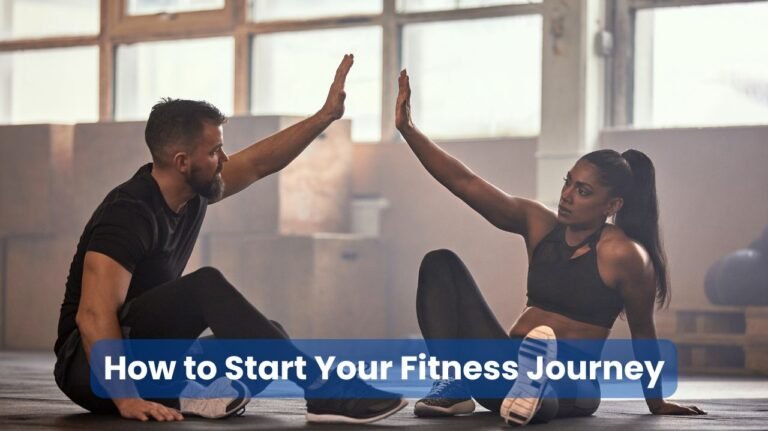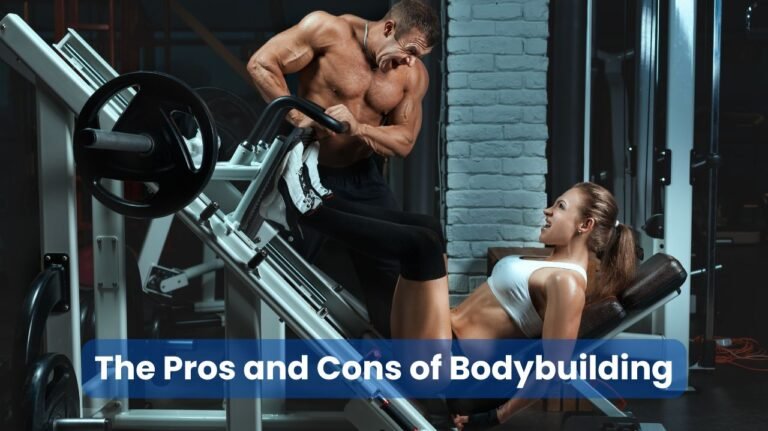Bodybuilding Competition Prep: What to Expect and How to Prepare
For aspiring bodybuilders, stepping onto a competition stage represents the culmination of months, or even years, of dedicated training and preparation.
Whether you’re considering your first competition or looking to improve your approach, this comprehensive guide will walk you through everything you need to know about bodybuilding competition prep.
👉 Pack On Muscle Mass and Get Bigger and Stronger
👉 Burn Fat and Get Seriously Ripped
👉 Get Explosive Strength and Maximum Stamina
👉 Become A Gym Beast With Legal SARMs Alternatives
Understanding the Basics of Competition Prep
Bodybuilding competition preparation is a complex process that typically spans 12-16 weeks, requiring meticulous attention to training, nutrition, and presentation. Success on stage demands more than just building muscle—it requires achieving the perfect balance of size, symmetry, and definition.
Types of Bodybuilding Competitions
Different federations offer various competition categories:
- Men’s Bodybuilding
- Men’s Classic Physique
- Men’s Physique
- Women’s Bodybuilding
- Figure
- Bikini
- Wellness
- Fitness
Competition Categories and Weight Classes
Most competitions divide athletes into categories based on:
- Experience level (Novice, Amateur, Pro)
- Height classes
- Weight divisions
- Age groups (Junior, Open, Masters)
Timeline Breakdown
| Weeks Out | Primary Focus | Key Activities |
|---|---|---|
| 16-12 | Building Phase | Maintain muscle mass, begin cardio |
| 12-8 | Cutting Phase | Increase cardio, reduce calories |
| 8-4 | Definition | Peak conditioning, posing practice |
| 4-1 | Peak Week | Water manipulation, carb depletion |
| 1 | Show Week | Final preparations, tanning, carb loading |
Training Requirements
Weight Training Adjustments
Competition prep training differs from off-season training in several ways:
- Higher rep ranges (12-15 reps)
- Increased training frequency
- Focus on maintaining strength
- Greater emphasis on isolation exercises
- Strategic deload weeks
Cardio Protocol
As the competition approaches, cardiovascular training becomes increasingly important:
- Initial phase: 20-30 minutes, 3-4 times per week
- Mid-prep: 30-45 minutes, 5-6 times per week
- Peak phase: Up to twice daily sessions
- Mix of HIIT and steady-state cardio
Nutrition Strategy
Caloric Requirements
The nutrition plan typically progresses through several phases:
- Initial cutting phase: 10-12 calories per pound of body weight
- Mid-prep phase: 8-10 calories per pound
- Final phase: 6-8 calories per pound
- Peak week: Highly individualized approach
Macronutrient Breakdown
- Protein: 1.2-1.5g per pound of body weight
- Carbohydrates: Gradually reduced throughout prep
- Fats: Minimum of 0.3g per pound of body weight
- Water: 1-2 gallons daily
Essential Supplements
Competition prep often requires specific supplementation:
- Protein powder
- BCAAs
- Multi-vitamins
- Electrolytes
- Pre-workout supplements
- Fish oil
- Magnesium
- Vitamin D3
Posing Practice
Mandatory Poses
Each division has specific mandatory poses that must be mastered:
- Front double biceps
- Front lat spread
- Side chest
- Side triceps
- Rear double biceps
- Rear lat spread
- Most muscular (for certain divisions)
Posing Tips
- Practice daily for 15-30 minutes
- Film yourself to analyze form
- Work with a posing coach
- Practice in competition shoes
- Learn to hold poses while breathing normally
- Master transitions between poses
Competition Day Preparation
One Week Out
- Begin water manipulation protocol
- Follow carb-depletion phase
- Reduce sodium intake
- Practice final posing routines
- Prepare competition kit
Competition Day Essentials
- Competition suit/trunks
- Stage shoes
- Backup suit
- Touch-up tan kit
- Light snacks and water
- Pump-up bands
- Oil/glaze
- Competition number pins
Mental Preparation
Psychological Aspects
- Set realistic expectations
- Develop stress management techniques
- Visualize success
- Create a support system
- Maintain a positive mindset
Common Challenges
- Dealing with hunger
- Managing fatigue
- Maintaining focus
- Handling stress
- Balancing daily life with prep
Cost Considerations
Competition prep involves various expenses:
- Competition entry fees ($50-200)
- Federation membership ($50-100)
- Coaching ($200-1000/month)
- Tanning ($100-200)
- Suit/trunks ($200-500)
- Shoes ($50-150)
- Supplements ($100-300/month)
- Food ($300-500/month)
Recovery and Post-Competition
Immediate Post-Show
- Gradual return to normal eating
- Reduce training volume
- Focus on rest and recovery
- Mental decompression
- Analysis of the experience
Long-term Planning
- Set new goals
- Evaluate areas for improvement
- Plan off-season strategy
- Consider next competition date
- Adjust training and nutrition plans
Tips for Success
Pre-Competition Checklist
- Register early for the competition
- Book hotel accommodations if needed
- Schedule tanning appointments
- Plan travel arrangements
- Organize support team
- Practice suit transitions
- Prepare music for routines (if required)
Competition Day Success Strategies
- Arrive early to venue
- Follow predetermined peak week protocol
- Stay calm and focused
- Maintain energy levels
- Stay warm between prejudging and finals
- Listen to expediter instructions
- Network with other competitors
👉 Boost in Focus and Energy to Help Increase Pumps and Performance
👉 Increase Gains, Promote Muscle Growth and Boost Energy
👉 Powerful Muscle Growth, Increased Blood Flow, and Enhanced Pumps
👉 Bulk-Up, Increase Gains, And Improve Recovery
Conclusion
Preparing for a bodybuilding competition is an intensive journey that requires dedication, discipline, and attention to detail. Success comes from careful planning, consistent execution, and the ability to adapt as needed throughout the preparation period.
Whether competing for personal achievement or pursuing a professional career, understanding and implementing these guidelines will help create a solid foundation for competition success.
Remember that every competitor’s journey is unique, and what works for one may not work for another. It’s essential to work with experienced coaches and professionals who can provide personalized guidance throughout the preparation process.
With proper planning, dedication, and the right support system, the stage can become a platform for showcasing months of hard work and determination.







